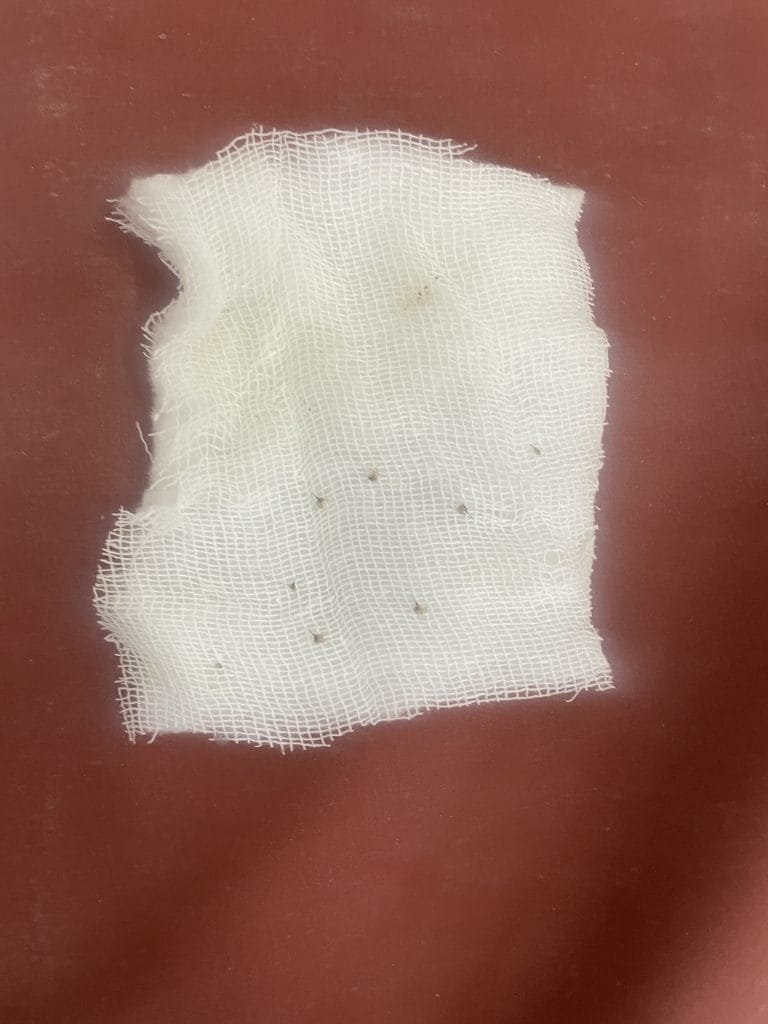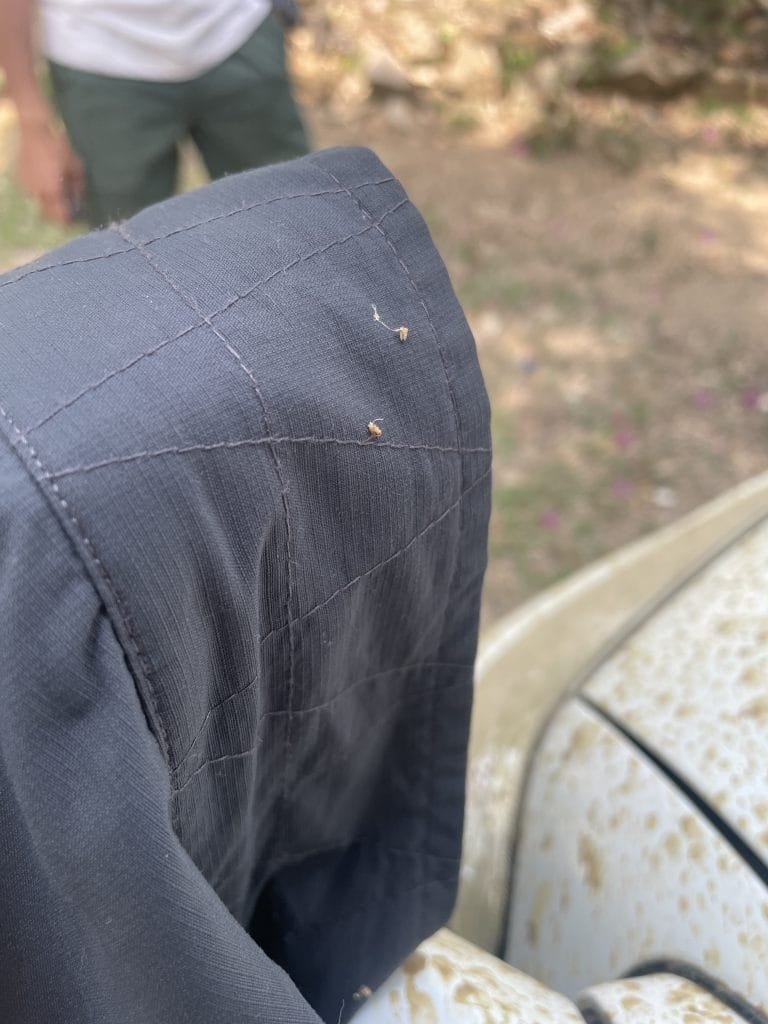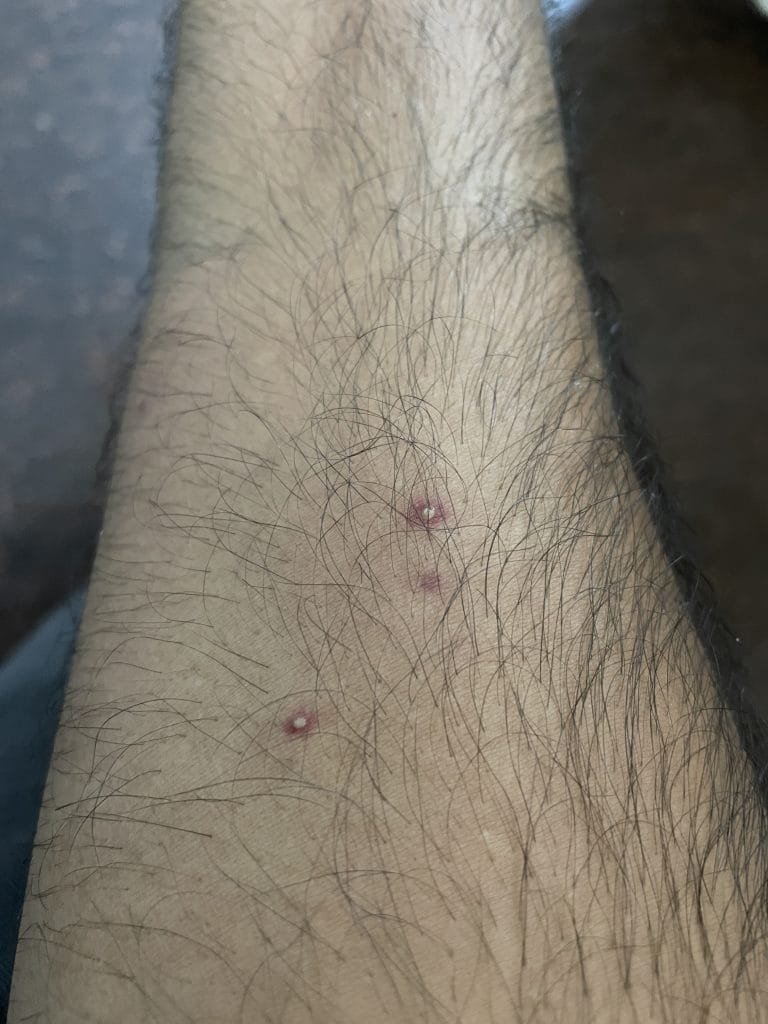Yes I did!
Earlier this year, during a regular morning safari, it happened. It was an unusual summer morning at Tadoba. It had been raining heavily at night, and days were scorching hot and humid. Summers are generally the time when honey bees are slightly agitated because of a lack of food (flowers) and they are easily visible to predators due to the fall of leaves.
At fag end of the morning safari, we were waiting at the water body for the tiger to arrive. There were high-pitched sambar calls in the vicinity, so we were sure a tiger was around. This waterbody was left to hardly about 20% of its original size due to peak summers. We already had a great time as we had seen a leopard and bear in the morning. This waterbody had tall trees and on the edge of branches were large honeycombs. On any given day, if you travel here, you will hear bees buzzing. I asked the driver about honey bees, and he said it wasn’t unusual. I was relaxed. We were parked a good 40-50 feet away from honeycombs.
While we were waiting for the striped cat’s arrival, two more gypsy came packed with tourists in colourful dresses, and the perfume applied was very strong. After they crossed us, out of the blue, we were under attack. The little 10-year-old girl and her mother, sitting on the last row of gypsy were first to come under attack. By the time I could understand what was happening, the girl’s father, who was sitting in the second row with me, was also attacked. Within a split second, honeybees attacked me. I instructed the driver to drive away quickly, but by then, even the driver was under attack. The driver had amazing driving skills. The way he drove while being under attack, hiding from bees and managing to keep the vehicle on the safari track was amazing.
My breathing had become rapid and deep. I couldn’t speak much. During the attack, the only thought I had on my mind was that this was my last day on Earth. But then it occurred to me that I had never heard of anyone dying due to a honeybee attack. So I calmed down, but still, I couldn’t utter a word due to heavy breathing except condoling the little girl with me on the safari. I had a severe headache and itching burning sensation, all over my skull and hand. I was bitten by a few honey bees before so I know things will be fine.
After a few minutes/km, the attack was over. Bee’s had stopped chasing us. Once we came out of the safari route, all of us immediately removed as many stingers as possible, poured cold and went to a nearby government hospital for treatment. On the way to the hospital, the venom started reacting on the girl, and that’s where I got worried. So we drove very fast to the hospital, which was 30 minutes away. We took injections and medication immediately, and we were prescribed medication to be continued for a few more days. On the way back, the mother reacted to anti-venom and the girl’s father after reaching the resort. The reaction was Nausea and vomiting.
I had 8 stings removed from my head, 4 from my eyebrows and a few more from my tricep area. A total of 27 were removed by the doctor. I had already removed dozens after the attack, on my way to the hospital. I believe the attack was very severe and I could have had more stings but thanks to my safari gear which kept me completely covered except for my eye and wrist.
My body fortunately did not react to venom maybe because I was bitten before but it still took 3 weeks for redness, swelling, itching and pain on bite spot to go away. Oh boy… This is an experience no one should have. After the incident, I have been studying and researching honey bees and the science behind the attack. I spoke to beekeepers as well. That’s why this blog comes months after the attack. This blog is on how and what of attacks. Second part of this blog will be dedicated to types of honey bees found in India.


The question remains why did the bee’s attack?
Bee’s attack for only one reason- to defend the queen. The attack is carried out by soldier bee’s whose sole purpose is to defend the queen, come what may. The bigger question is what triggers the discomfort? No one really knows but there are multiple theories the most popular are below:
1. Strong smell like perfumes/deos. Bees are very sensitive to pheromones. A slight change in smell in air discomforts them and can trigger an attack. Locals rumour animals in heat, and women in heavy menstrual bleeding can be a trigger as there is a typical pheromone released.
2. Sight of predators – namely Bears, Honeybadger and Buzzards. These animals are well known to droll on presence of honeycomb and break it to consume the nectar. If bee’s believe you are one of those you will be charged. Anything large black and brown in color can trigger attack.
3. Bright colours: Believed to be another trigger as honey bees believe it to be a flower filled with nectar. I would debate this because bee’s visibility spectrum is of different.
What to do if you are attacked? The first thing to do is stay calm and composed. Honey bees will touch and go. This is next to impossible to do, unless you are trained and wearing protective gear like the bee-keepers. So what is the second option? Second best option is to cover yourself with very very thick protective clothing and stay calm and stay still for long. Again practically, very difficult. No short and deep breathing. They will enter your nose following the pheromone released due to rapid breathing. This happened to me.
A practical solution is to run run & run as long and as far away as possible. Preferably run zig-zag and around and through trees & bushes and change your elevation. They will chase you maybe for a few km or a few minutes, depending on the species of bee in the process, expect a few stings, you can’t outrun them. Our gypsy couldn’t at least for a few minutes.
Once out of attack, you need to do is remove the stingers from your skin. The soldier bee, while defending the queen, will inject venom using its stingers and will die in the process. The stingers get left behind. Go to the nearest hospital and take yourself anti-allergic, pain killer injections and follow prescribed medications.


So, what’s the preventive measure to avoid honeybee attack? Well, there is not much, this topic is still being researched. My learning and suggestion is that when you are heading for woods make sure you don’t wear bright clothing and don’t apply perfume/deo of any sort. You don’t want UNWANTED attention.
If possible, keep your body covered as much as possible. Keeping oneself covered can be a sweaty experience during Indian summers but trust me in case of a bee attack it will be your protective shield. All unprovoked attacks I have come to know have happened in the summers of India- March, April, May and June during peak tiger season.

Thank you very informative. I am in India this November plenty of things to remember not to do when on safari.
Happy to see that you recovered well and the little girl and everyone that was affected by this terrifying experience.
The key to avoid stingers is to be as still as possible…same happened with our gypsy at Tadoba…lucky we escaped